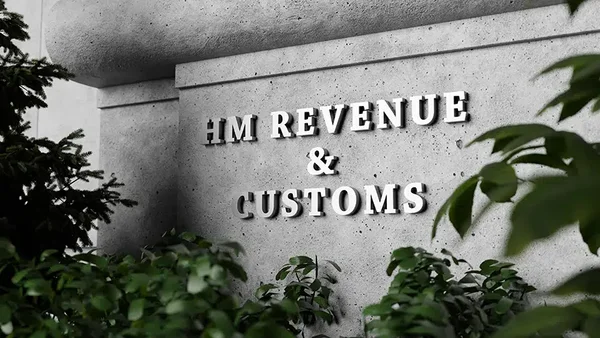With the announcement of Labour’s new Chancellor Rachel Reeves’ first Budget only weeks away, whispers of a significant property tax overhaul have begun circulating in policy circles and sent ripples of uncertainty through the UK landlord and property investment sector.
Reports suggest the Treasury is exploring options to align Capital Gains Tax (CGT) for residential property with rates levied on other assets, potentially bringing a major shift for landlords, second-home owners, and investors.
Sources indicate the government is considering the end of the current private residence relief on CGT which allows homeowners selling a property they have lived in to avoid capital gains tax on any profit.
At the same time, investors fear the current 18 per cent basic and 28 per cent higher CGT rates for property sales could be harmonised with the much higher income tax rates up to 45 per cent for top earners resulting in a substantial hit to profits from property sales.
Background: Capital Gains Tax and Housing
Capital Gains Tax has long been a point of contention in UK housing policy. Currently, individuals selling a second home or buy-to-let property face a tax of either 18 per cent (for basic rate taxpayers) or 28 per cent (for higher/additional rate taxpayers) on any increase in property value, minus the annual allowance and applicable reliefs. In contrast, gains from selling assets such as shares are charged at lower rates typically 10 per cent and 20 per cent respectively.
The speculation ahead of the 2025 Budget suggests Chancellor Rachel Reeves is under pressure to raise revenue for public services and balance government finances post-pandemic. Aligning CGT on property with income tax rates 20, 40, or even 45 per cent has been mooted as one way to generate billions in additional tax revenue, but critics warn this could chill investment and exacerbate the rental housing crisis.
Landlord Groups Warn of Market Consequences
Industry representatives are sounding the alarm about the possible impact of higher property taxes on the already embattled private rented sector. Ben Beadle, chief executive of the National Residential Landlords Association (NRLA), said, “Given the many changes landlords have already had to absorb from Section 24 tax changes to higher stamp duty further tax hikes could push more investors to exit the rental market entirely.”
Beadle added, “Reducing the supply of privately rented homes would only worsen the current crisis, harming tenants most of all.” The NRLA report that 30 per cent of landlords have considered selling up in the past year alone, citing rising costs, increasing regulation and political uncertainty as key reasons.
Some landlords fear an ‘exodus’ akin to what occurred following the controversial removal of mortgage interest relief and other fiscal tweaks in recent years. “If the government proceeds, it risks not just drying up investment but causing rent rises as supply shrinks,” warned Beadle.
Potential Gains for the Treasury and Potential Costs to Tenants
Government insiders argue that an overhaul of the current CGT regime could yield much-needed funds for public spending. The Office for Budget Responsibility (OBR) estimates that increasing CGT rates to match those of income tax could raise between £6 and £8 billion a year. Such revenue would aid Labour’s efforts to fund priority areas like the NHS and child poverty initiatives without breaching the government’s fiscal rules.
However, housing analysts caution that the knock-on effects could ultimately penalise tenants. Lucian Cook, residential research director at Savills, said, “Any benefit to the Exchequer risks being offset by higher rents, reduced rental supply, and a greater reliance on the social housing sector.” Cook also suggested speculative selling in advance of any policy change could disrupt local markets.

Buy-to-Let Investors and Second-Home Owners in the Firing Line
According to HMRC data, property investors and second-home owners pay a disproportionately high share of CGT in the UK, contributing almost 60 per cent of total gains declared. These groups often rely on property sales as part of their retirement or inheritance planning. Ruth Gregory, chief UK economist at Capital Economics, observed, “Further penalising this demographic could push up rents, as landlords seek to offset higher taxes by passing costs onto tenants.”
Many small landlords say they already feel ‘punished’ for providing rental homes and worry they will shoulder the burden of widescale tax reform. Some have called for exemptions for accidental landlords, such as those forced to rent out a home due to life circumstances.
Calls for Clarity and Consultation
With only weeks until the expected 2025 Budget, professional bodies, property groups, and think tanks are pressing for an open consultation period and greater clarity from the Chancellor. The British Property Federation chief executive Melanie Leech demanded, “The government must make clear how any changes to CGT will impact the supply and diversity of housing in the private rented sector.”
Housing campaigners, meanwhile, argue that any such reforms should be paired with support for first-time buyers and incentives to develop affordable housing. Polly Neate, CEO of Shelter, stated, “Tax reforms must not only raise revenue but also make housing fairer and more accessible for those in need.”

Wider Housing Market Implications
The potential property tax overhaul comes at a time of profound uncertainty for the UK housing market. The latest figures from the Office for National Statistics show average UK rents rising by 6.2 per cent in the past year, the fastest rate in over a decade. Industry experts warn that further fiscal pressure on landlords could accelerate this trend.
Additionally, fears of a ‘landlord flight’ could lead to higher homelessness and greater demand for overstretched council housing. The Institute for Fiscal Studies issued a technical note advising, “While tax reform can plug treasury gaps in the short term, a holistic view is needed to prevent longer-term market instability.”
Final Summary
Pie the UK’s independent hub for smart tax insights explores the growing debate around Capital Gains Tax reform and what it could mean for landlords, investors, and tenants alike.
As Chancellor Rachel Reeves prepares her first Budget for September 2025, a potential shakeup of Capital Gains Tax on residential property sales is causing anxiety across the housing sector. Proposals to align CGT rates for property with income tax bands could leave landlords, investors, and second-home owners facing far higher bills raising up to £8 billion a year for the government but threatening a contraction in the private rented market and higher costs for tenants.
Industry bodies, landlords, and housing campaigners alike are demanding urgent clarity on the government’s intentions, voicing concerns that tax hikes could worsen the UK’s ongoing rental housing crisis.
Stakeholders call for a balanced approach: one that preserves much-needed investment in rented homes while delivering fiscal responsibility and social justice. The weeks ahead are likely to see intense lobbying on all sides as the details of Reeves’ Budget emerge and the future of the UK’s housing market hangs in the balance.











